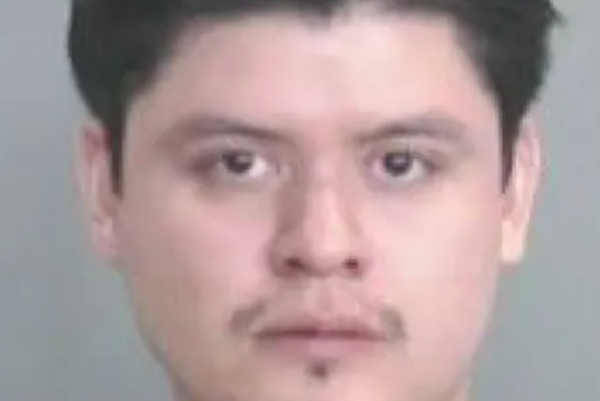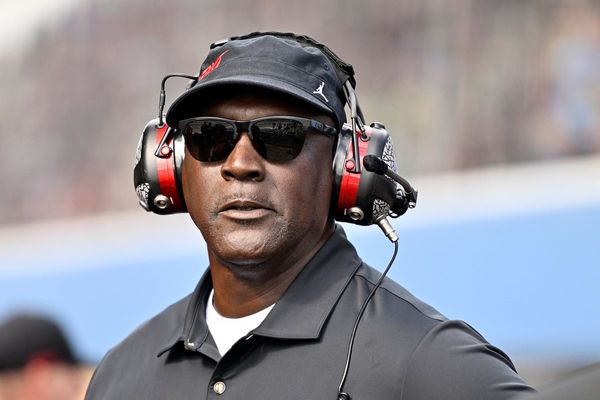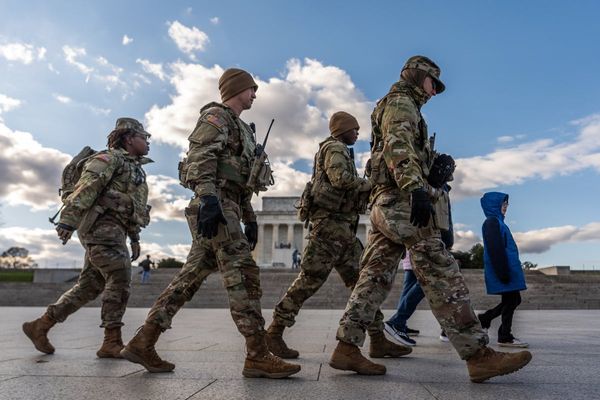
On 29 October, at 19.48, a 69-year-old man was outside his house in Via Zanzottera, in the north-west of Milan. It was just an hour before kick-off in the match between Internazionale and Sampdoria and Vittorio Boiocchi, nicknamed “lo Zio” (“the Uncle”), was going home to watch the game on TV.
Because of his long criminal record, he was banned from being within 2km of the San Siro, the stadium shared by Milan and Inter. Despite that, Boiocchi had been drinking in Baretto, the historical den for Inter ultras, the “Boys San”.
A motorcycle with two people aboard pulled up and five shots were fired from a 9mm gun, hitting Boiocchi in the chest and neck. He was rushed to hospital in an ambulance but died shortly afterwards. During the first half of the match, the news spread quickly across the terraces. The Inter ultras (the hardcore fans) removed their striscioni, their long banners, and fell silent. At half time, they forced every fan in their section to leave the stadium, a sign of respect for their fallen leader.
At the time of his death, Boiocchi had spent more than a third of his life, just over 26 years, in prison. His criminal career had begun with hold-ups in banks and supermarkets before graduating to wholesale cocaine dealing. Over the years, he had been convicted for international drug trafficking, criminal conspiracy, possession of, and illegal carrying of, weapons, robbery, kidnapping and theft. He had contacts in the Sicilian, Calabrian and Puglian mafias.

His last arrest was in March 2021 when – with lockdowns having dented his match income – he was intercepted by police as he was about to kidnap a Milanese businessman. When stopped, he was at the wheel of a stolen car which contained handcuffs, a taser and a Guardia di Finanza bib.
The murder of lo Zio wasn’t the first professional hit on a capo-ultrà. In August 2019, Fabrizio Piscitelli, known as Diabolik, was murdered with a single shot to his temple as he sat in a park in Rome. Diabolik was the boss of the Irriducibili, the undisputed top dogs of the Lazio terraces. He, too, had been involved in large drug deals and was attempting to carve out a space for himself in the crowded Roman underworld.
In July 2016, Ciccio Bucci, a shunned former boss of the dominant Juventus ultras, the Drughi (an Italianisation of the Droogs of A Clockwork Orange fame) was either murdered or committed suicide from a high viaduct connecting Turin to Cuneo. He had been an informant for the secret services, revealing to them the infiltration of far-right extremists and the ’Ndrangheta, the Calabrian mafia, into the Juventus terraces.
So Boiocchi’s murder has once again turned the spotlight on to the ultra world and its overlap with organised crime. In one recent wiretap, he had boasted about making €80,000 a month. He may have been gilding the lily, but it’s certain that he made vast sums through ticket touting (upping the price on tickets given free, or discounted, by the Inter management to their ultras) and by extorting a cut on the parking fees and burger-van profits from around the stadium.
Since release from his last stint in prison, in 2019, Boiocchi had caused ructions on the Inter terraces by attempting to assert his leadership. His release coincided with a period of intense difficulty for the Inter ultras: they had been under media and investigative spotlights following the death of Daniele Belardinelli, or “Dede”, when the Inter ultras had ambushed their Neapolitan rivals in December 2018. (Belardinelli wasn’t even an Inter ultra, but a member of a Nazi ultra gang from Varese that was allied with Inter’s Boys.)

Boiocchi’s reappearance had created tensions and there were violent clashes with another Inter capo-ultrà, Franchino Caravita, during which Boiocchi suffered a heart attack. Many of the younger ultras were enraged by the greed of the Uncle. He was once alleged to have complained: “How is it possible that we control the whole terraces and we eat so little?”
The ultras – a mix of punks, Hells Angels, hooligans and hoods – have been an intractable problem for Italian authorities and football clubs for many decades. In the 2000s, a confrontational approach created bloodshed on both sides, with a policeman, Filippo Raciti, killed in clashes in Catania in February 2007, and a Lazio fan, Gabriele Sandri, shot by a policeman as he left a motorway service station in November of the same year. Dozens of other ultras and policemen, or carabinieri, have been wounded and maimed.
Tensions were sometimes so high that games were abandoned altogether, as with the famous Rome derby known as the “Derby of the Dead Baby” (the death of a baby was a rumour which turned out to be false). The hated tessera del tifoso (an obligatory registration card issued by each club) threw fuel on the fire: it divided almost every ultra group, creating ill will in the movement between those who “sold out” and registered and those who “held out” and therefore could no longer go to games.
The alternative to collusion and accommodation, however, has been equally problematic. Because the ultras of big clubs are counted in the thousands, their power is very large: they can decide to vote en masse for a particular politician, call fan strikes, veto newspapers, force players to be sold and blackmail clubs by threatening to chant racist songs so that the clubs are fined.
Many presidents and politicians conclude that it’s better to have these powerful groups on side than set against them: Matteo Salvini, leader of the rightwing League party, publicly embraced Luca Lucci, a Milan capo-ultrà who has also been convicted of major drug dealing, on the San Siro grass in 2018. However murky, the terraces can make or break a political career.
Counting on the support of their erstwhile colleagues, various ultras even enter parliament, like Daniele Belotti, a Leghista from Atalanta (Bergamo). In 2018, he received the highest votes (105,000) of any deputy in the Italian parliament.
The clubs often have little choice but to indulge the ultras. Attendances in Serie A are the lowest in Europe’s top five leagues (in the 2021-22 season, it saw an average attendance of 18,235, compared to the Premier League’s 39,632). In Serie B and Serie C, the figures are far lower (there were under 3,000 spectators in one Serie B game this season). So presidents will often do whatever is necessary to avoid a fans’ strike: gifting dozens of free tickets to ultra groups and allowing them to operate the burger and parking concessions. In the biggest clubs (where there’s ample evidence of ultras receiving hundreds of tickets), touting can make a capo-ultrà €10-20,000 in a single afternoon.
That easy money has solidified the overlap between the ultras and organised crime. Compared to drug-dealing, touting carries minimal risks and negligible legal sanction, so many mafias have muscled their way in. The ultras, meanwhile, have often gone the other way, moving into drug slinging by acting as couriers, distributors and retailers for the well-known mafias from Sicily and Calabria. The professional nature of the hit on Boiocchi suggests that, like Piscitelli, he had somehow offended a mafia contact.
What’s intriguing is how much the ultra subculture has mutated from its genesis in the late 1960s. Back then, almost all the groups were, politically, from the far left, borrowing names from partisan groups and from leftwing insurgencies across the world. The charismatic leaders were mostly just teenage tearaways and the terraces were an inclusive carnival of many colours and choruses.
Now, however, almost all groups are from the far right. The leaders are, like Boiocchi, often of retirement age. Spontaneity is rare as uniformity is imposed: many groups dress identically, usually in black.

One of the leading names of Verona’s notorious Brigate Gialloblù, Marco Zanoni, once said that ultras are, ultimately, idealists: “And we know that an idealist can, in certain circumstances, become a tough, even an extremist.” Their language is eerily similar to that of religious believers – they talk of “faith”, “sacrifice”, “martyrs” and how the dead are “always present”.
And, as with organised religion, organised ultras can be a significant force for good as well as bad. After the Amatrice earthquake in 2016, the mayor said ultras from all over Italy had done more for his town than all the country’s politicians and thanked them for their “extraordinary solidarity”. Every time there is a natural disaster, ultras are always in the front line. They often open food banks for the poor, and throughout the Covid pandemic were regularly distributing food parcels.
It remains a very paradoxical subculture, both criminal and altruistic, very arrogant and yet surprisingly humble. But the death of “the Uncle” means that ultras will continue to be known for all the wrong reasons.
Tobias Jones lives in Parma. His prize-winning book Ultra: the Underworld of Italian Football is published by Head of Zeus







